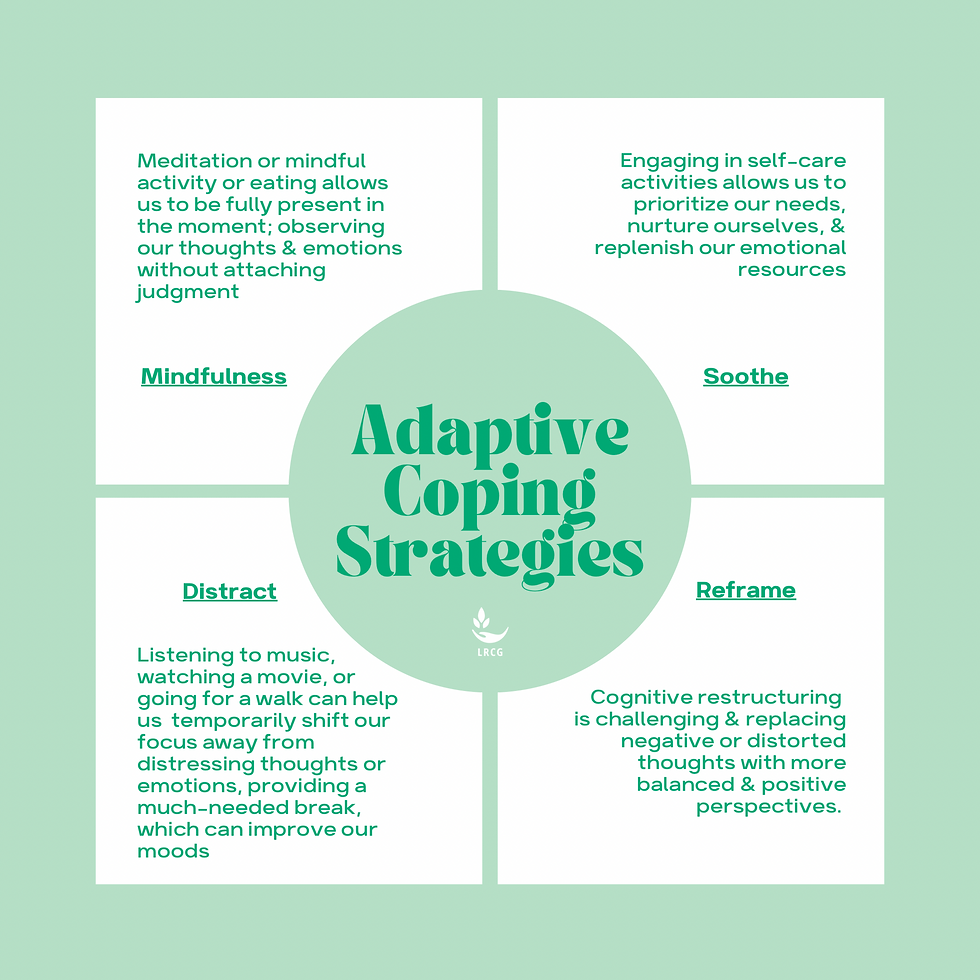How Have You Been Coping?
- Lee Ho

- Jun 19, 2023
- 2 min read
Updated: Jun 30, 2023
Coping strategies serve as our emotional lifeboats during challenging times.

They provide relief, help us regain sense of control and safety as well as
cultivating emotional regulation.
However, not all coping mechanisms are created equal. Some strategies are “adaptive”, empowering us to cope effectively, while others are “maladaptive”, inadvertently perpetuating our distress.
Maladaptive coping strategies are those that may provide temporary relief but ultimately exacerbate our problems. Examples include: excessive substance use, self-harm, denial, or avoidance. These strategies might momentarily numb our pain, provide temporary relief, or appear helpful but are often counterproductive and have further negative consequences on our well-being.
On the other hand, adaptive coping strategies are the superheroes of mental well-being. They can be life enhancing and promote long-term resilience. Here are a few examples:
Seeking support: Reaching out to trusted friends, family members, or mental health professionals can provide a supportive network and fresh perspectives on our challenges.
Mindfulness and relaxation techniques: Practices such as meditation, deep breathing, and progressive muscle relaxation help ground us in the present moment, fostering self-awareness and stress reduction.
Healthy outlets: Engaging in activities we enjoy, like exercising, painting, journaling, or playing an instrument, offers a constructive way to express emotions and channel our energy positively.
Cognitive reframing: Challenging negative thoughts and reframing them can promote compassion and positive self-talk.
Some helpful tips and ways we can incorporative adaptive coping strategies preventatively:
Awareness is key: Take a moment to reflect on your current coping mechanisms. Identify any maladaptive patterns that may be hindering your growth.
Self-compassion: Be gentle with yourself as you navigate this journey. Remember, change takes time, and it's okay if things are perfect - after all, we are all humans, trying our best (which is all that matters…!)
Professional support: Consider connecting with a mental health therapist or counsellor who can provide personalized strategies and support tailored to your unique needs.
Practice and perseverance: Adopting adaptive coping strategies is like forming any new habit—it takes practice and persistence. Start small and gradually incorporate these strategies.
Get help today to work towards using healthy ways to cope with life's stressors. Reach out to one of our counsellors who would be happy to help!





Comments